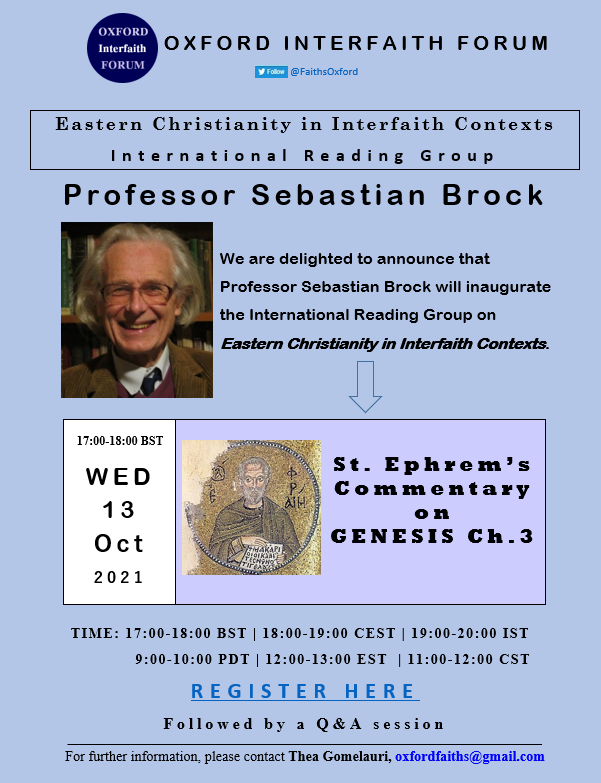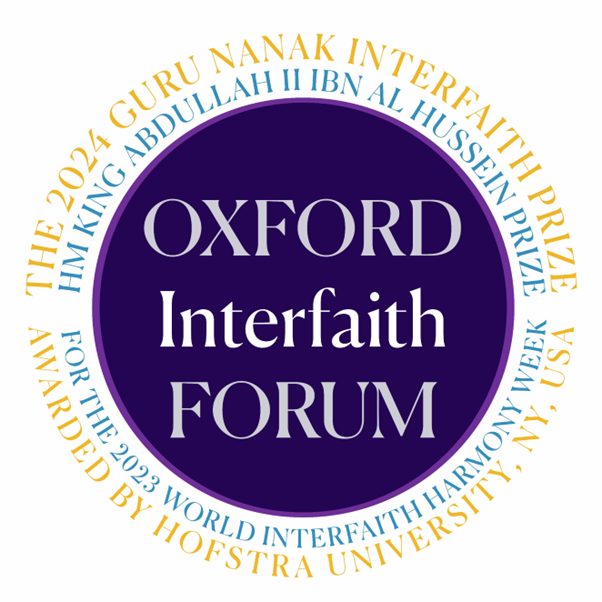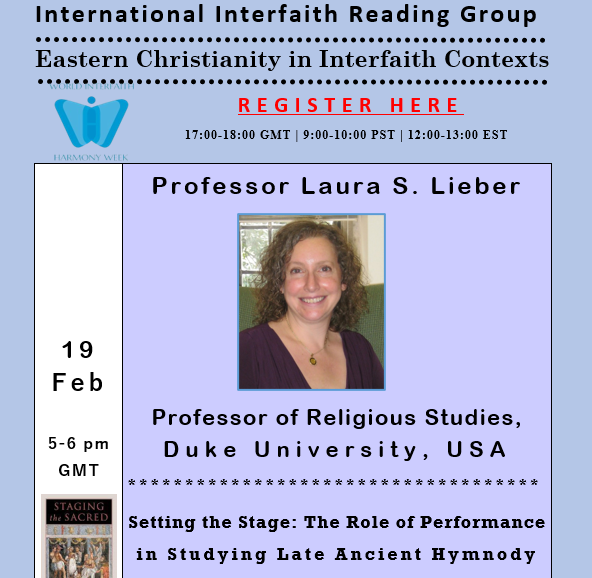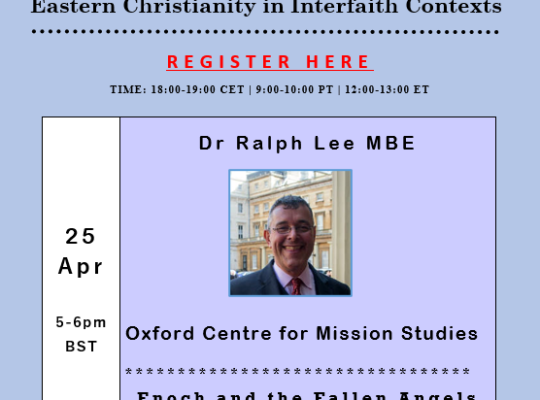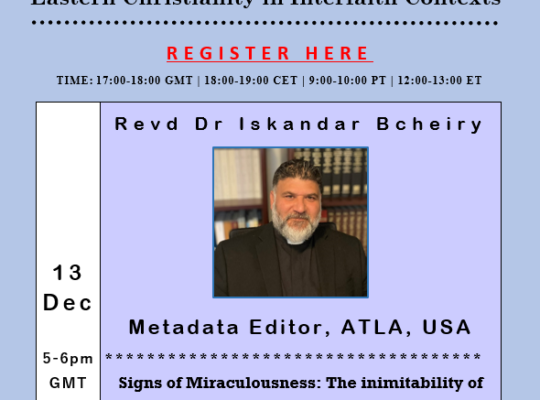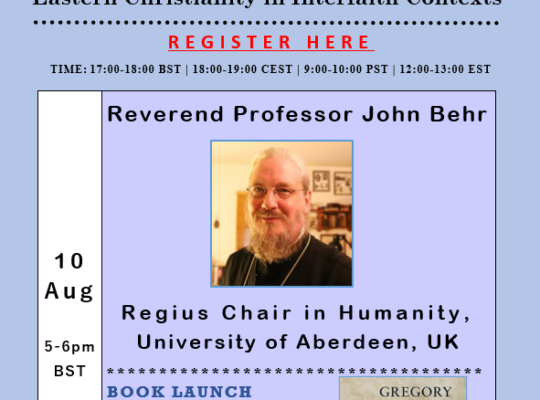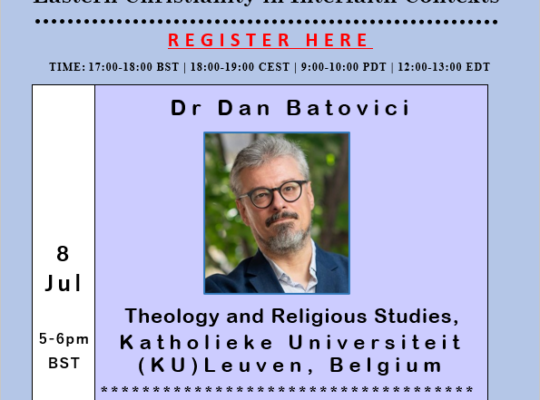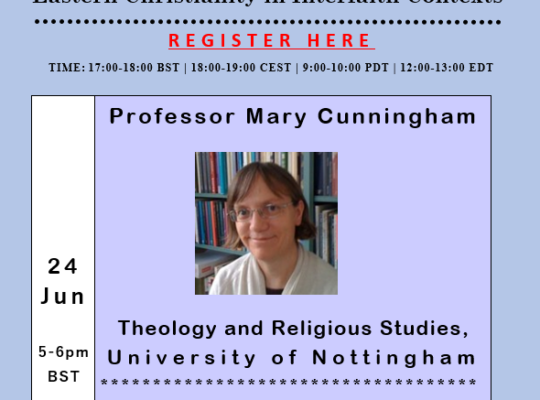19 February, 2024
We are deeply honoured to welcome Professor Laura Lieber, Professor of Religious Studies at Duke University, USA, to lead the Eastern Christianity in Interfaith Contexts Reading Group.
Here are the details of this fascinating event.
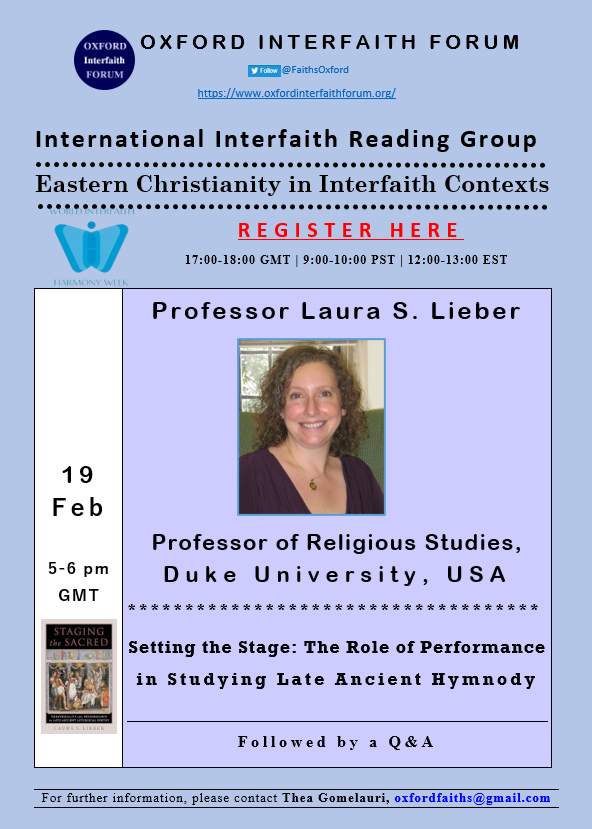
Title: Setting the Stage: The Role of Performance in Studying Late Ancient Hymnody
Abstract: Staging the Sacred examines the importance of Christian, Jewish, and Samaritan liturgical poetry from Late Antiquity through the lenses of performance, entertainment, and spectacle. I propose an account of hymnody as a performative and theatrical genre, combining religious and theatrical studies to examine how performers creatively engaged their audiences, utilized different modes of performance, and created complex characters through their speeches. To truly consider performance and engage with these poems fully, I urge readers to imagine the world beyond the page. While poetry and hymnody from Late Antiquity are usually presented in textual form, I move away from studying the text on its own, engaging instead with how these poems would have been performed and acted. The specific literary techniques associated with oratory and acting in Late Antiquity, such as apostrophe and vivid imagery, help craft a more accurate idea of liturgical presentations. I suggest ways that these ancient poets could have used their physical spaces of performance by borrowing from the gestures and body language of oratory, mime, and pantomime.
Speaker: Professor Laura S. Lieber, Director of the Center for Jewish Studies at Duke University, USA.
Speaker’s biography: Laura S. Lieber is a Professor of Religious Studies and Classical Studies at Duke University and the Director of the Duke University Center for Jewish Studies. She holds a PhD from the University of Chicago and received her rabbinic ordination from the Hebrew Union College-Jewish Institute of Religion. Her primary area of research is in the area of synagogue poetry (“piyyut”) from Late Antiquity and the Byzantine period. Professor Lieber examines these works from a variety of perspectives, including literary, performative, and comparative (particularly with early Christian hymnography in Syriac and Greek), and also as a genre of early Jewish biblical interpretation. In recent years, she has begun to integrate the study of material culture into her analysis of these literary works, as part of taking a more fully “contextual” approach to literary analysis. Her most recent work approaches late ancient hymnography through the lens of theater studies and performance.
Chair: Professor Sebastian Brock, FBA, University of Oxford, UK.
Date: 19 February, 2024
Time: 17:00-18:00 GMT | 9:00-10:00 PST | 12:00-13:00 EST
Venue: Online
If you would like to join the Eastern Christianity in Interfaith Contexts Reading Group, please sign up here.
Related Sessions:
- Narsai’s Memra 49, on Adam and Eve: O Instructive Fault!
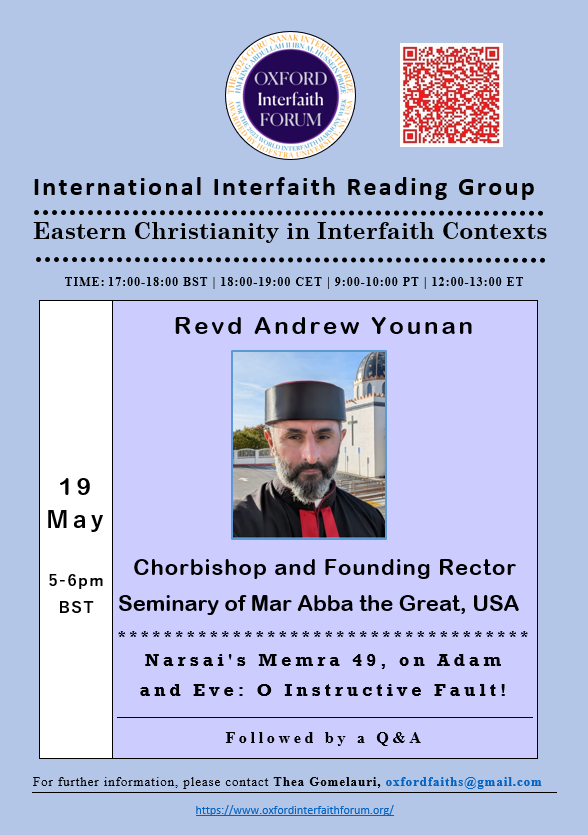
- Basil of Caesarea and Gregory of Nazianzus on the Problem with the Devil
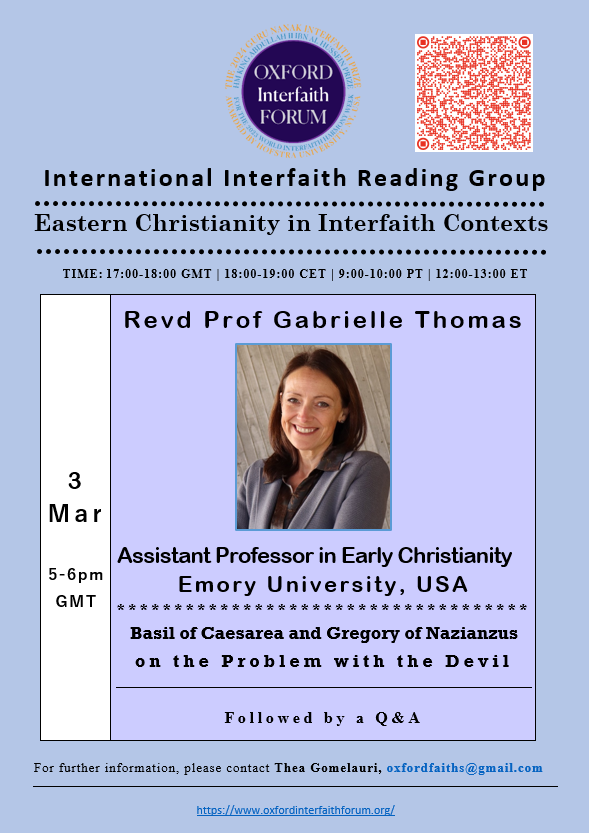
- The Peshitta and the Making of the Antioch Bible
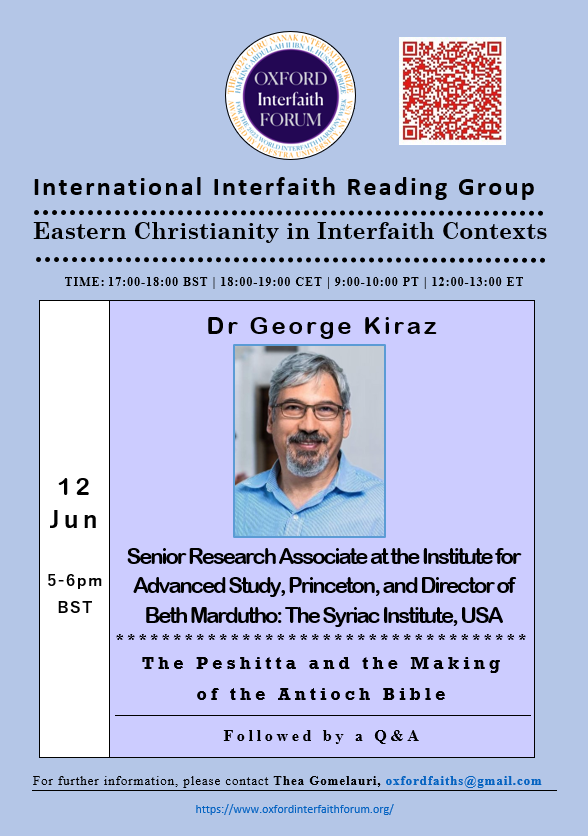
- Byzantine Aristocrat, Monk, Mystic and Dissident: Symeon the New Theologian (949-1022)
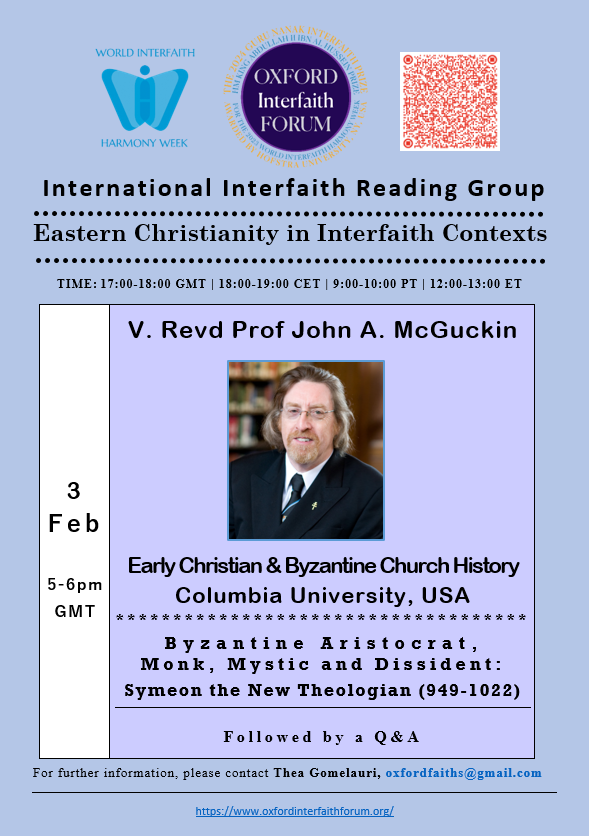
- Heavenly Hours: Creation and Time in the Syriac Testament of Adam
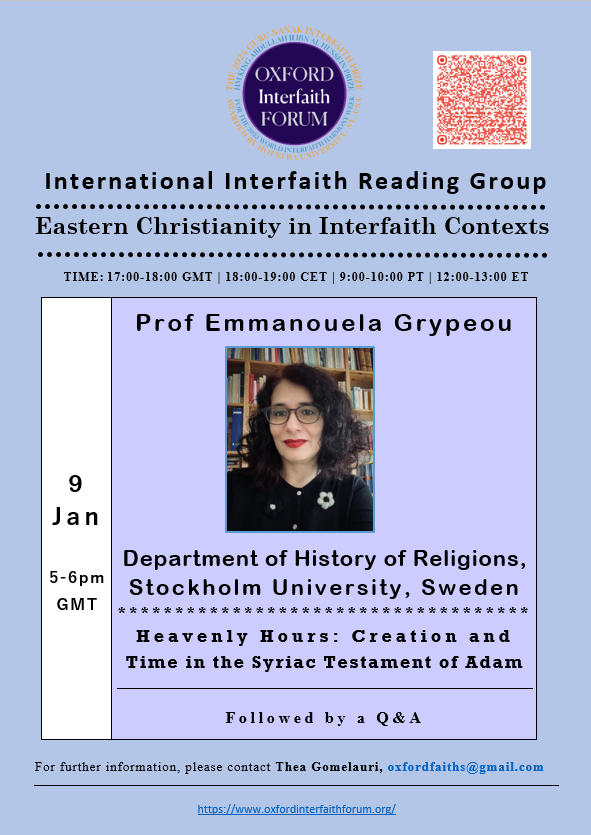
- The Monastic Homilies of Isaac of Antioch
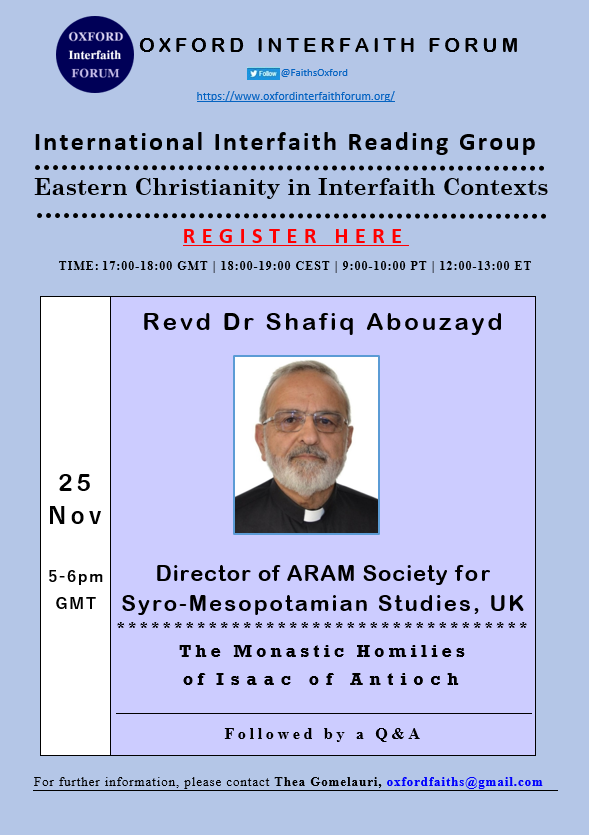
- Christian Trees
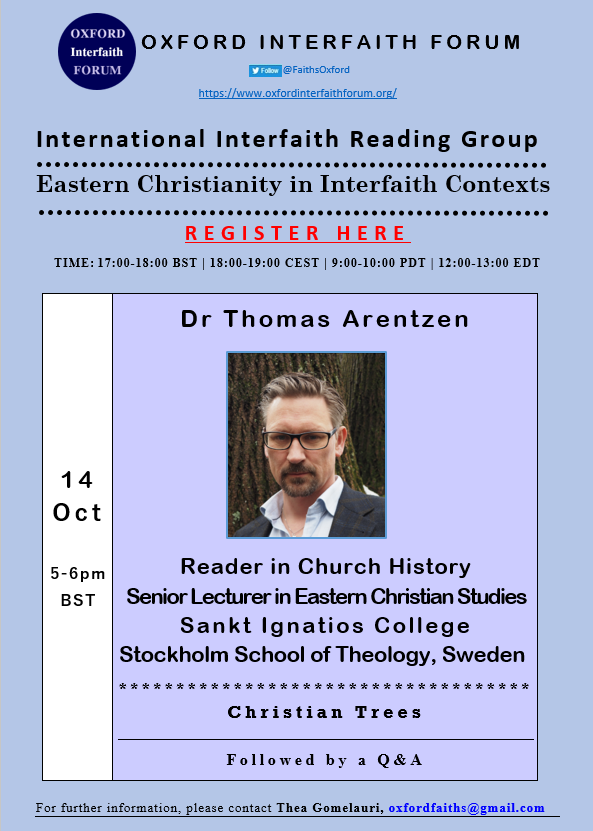
- Dialogue and Fire in a Fragmentary Syriac Martyrdom Narrative
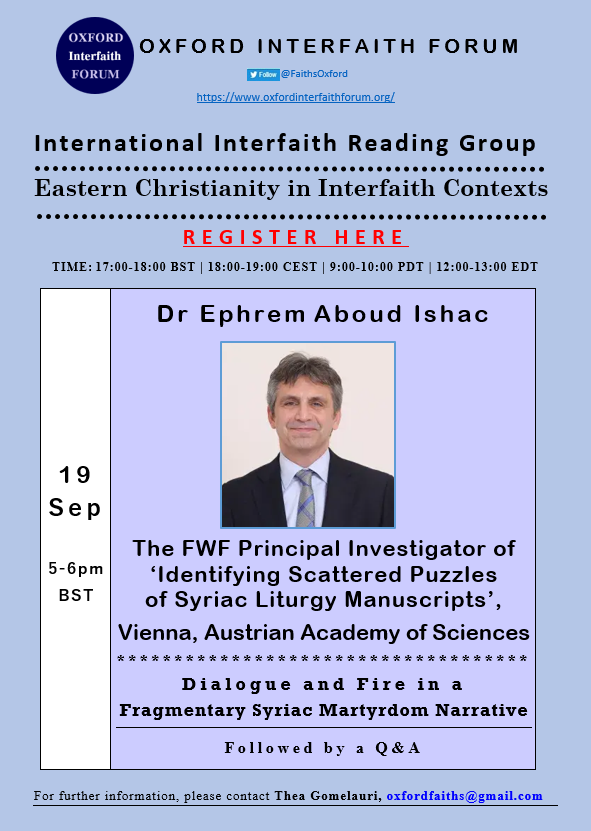
- The Origins of the First Anti-Jewish Good Friday Hymns
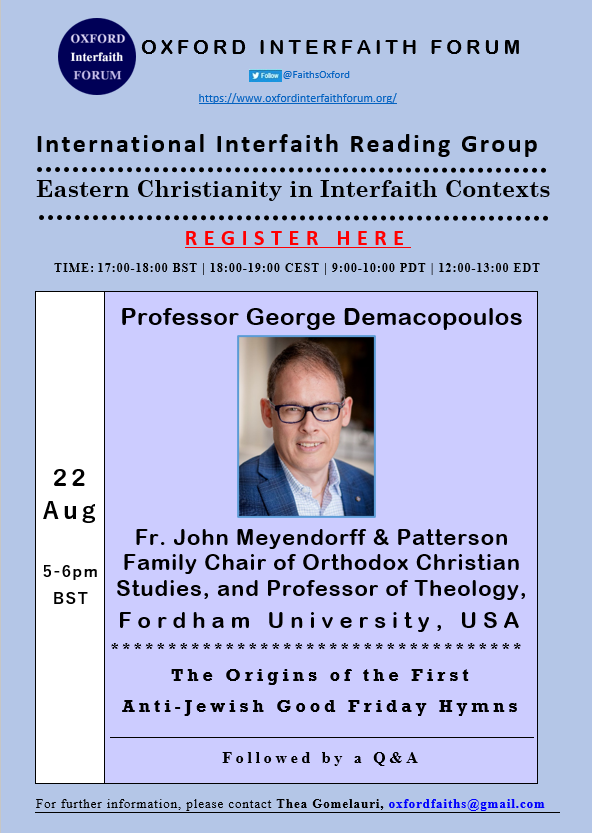
- Finding a Home: The West Syriac Context of the Clementine Epistles on Chastity
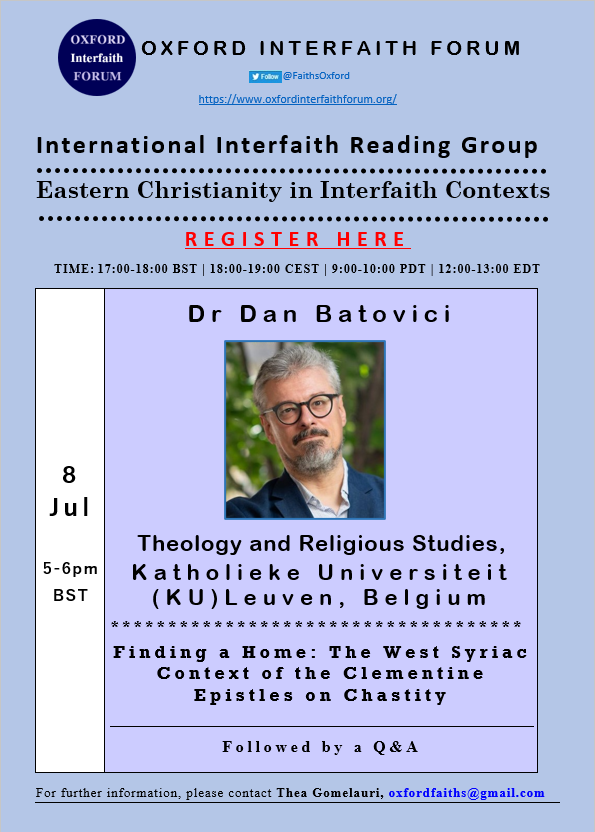
- Who was Mary, the Blessed Virgin and Mother of God? A Byzantine hagiographical narrative by the ninth-century Monk Epiphanios
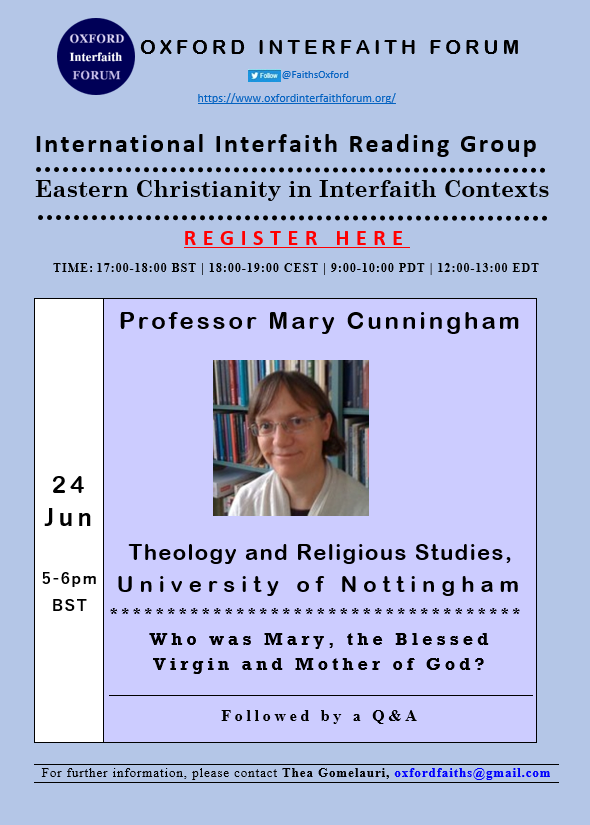
- Nikos Kazantzakis and Orthodox Christianity
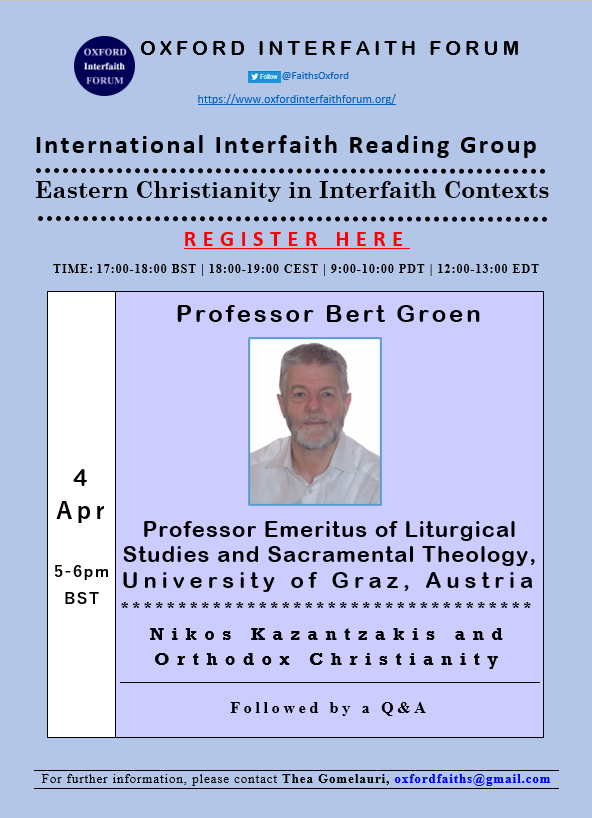
- The Miracle of Pilgrimage: A Coptic Journey to the Holy Land During the Ottoman Period
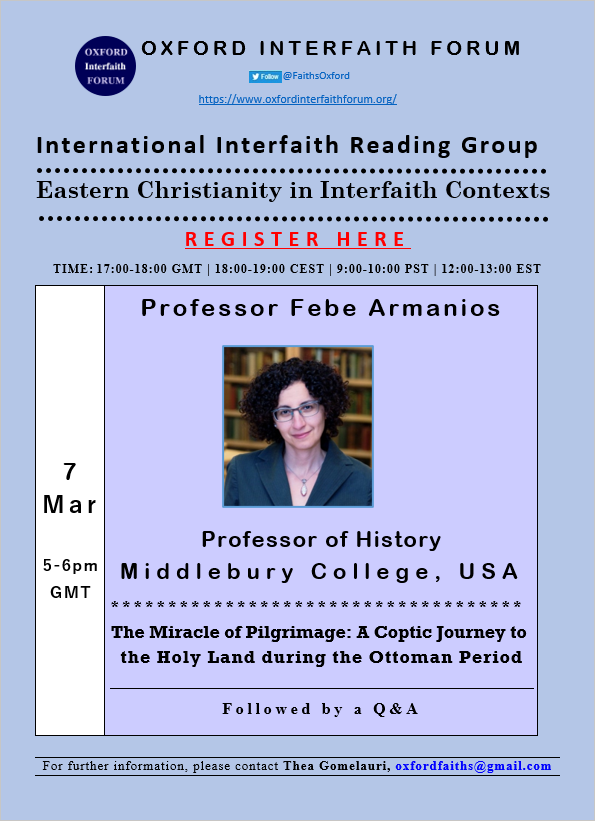
- Setting the Stage: The Rose of Performance in Studying Late Ancient Hymnody
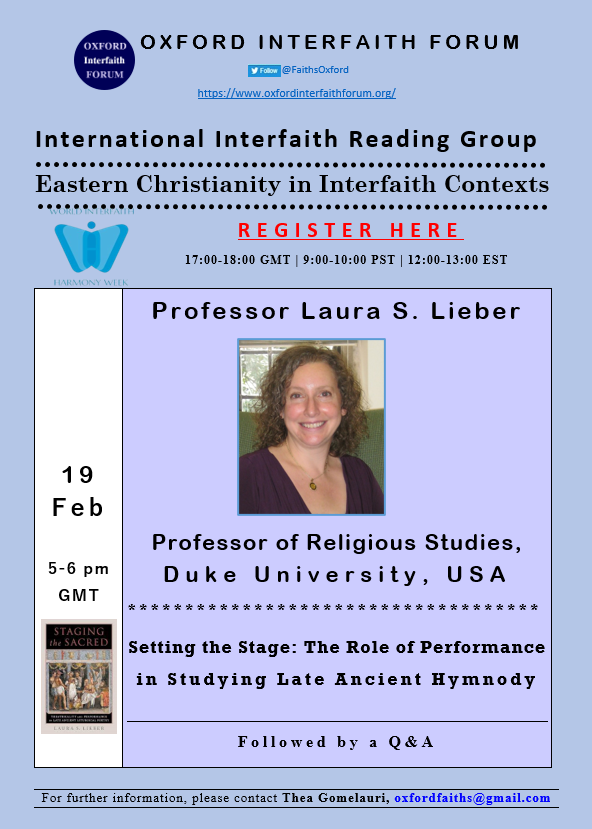
- Ephrem the Syrian and a New Beginning in Syriac Poetry
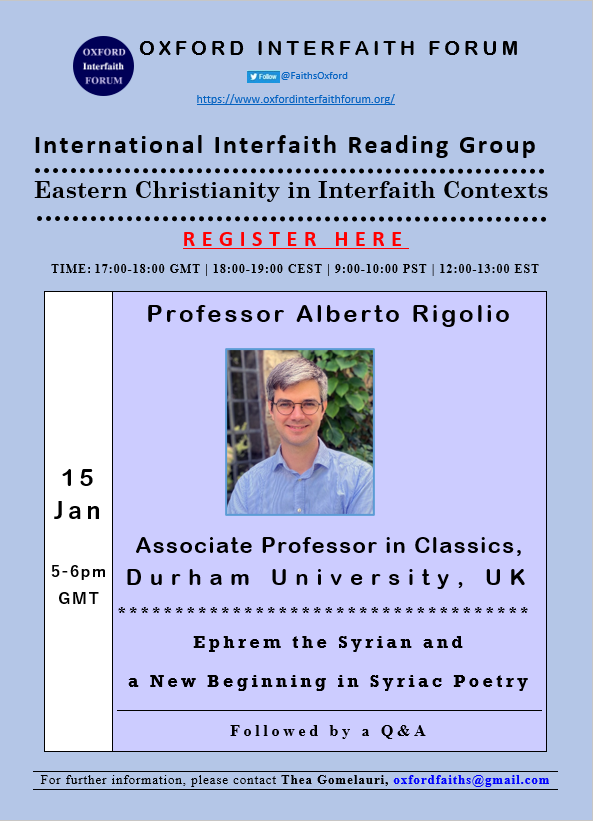
- A Jew Reads the Gospels in Syriac: Azariah de Rossi’s Critique of the Vulgate (1577)
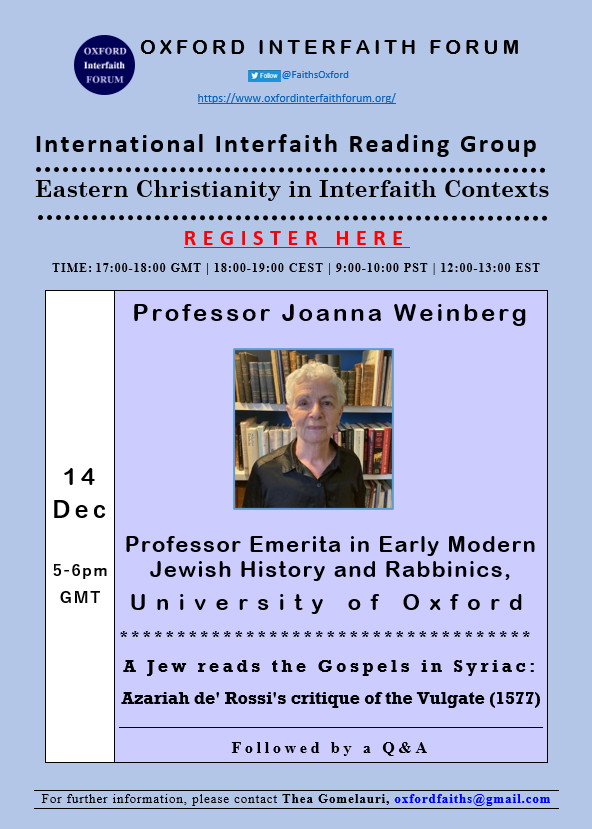
- The Manuscript Project at the Coptic Monastery of St Paul the Hermit at the Red Sea, Egypt
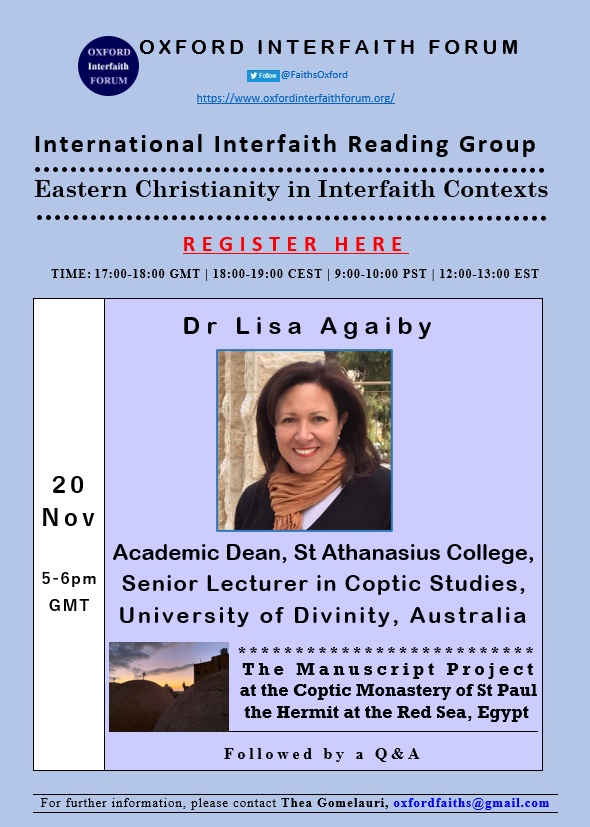
- Mary’s Ordeal: A Syriac Narrative Poem on Many and Joseph
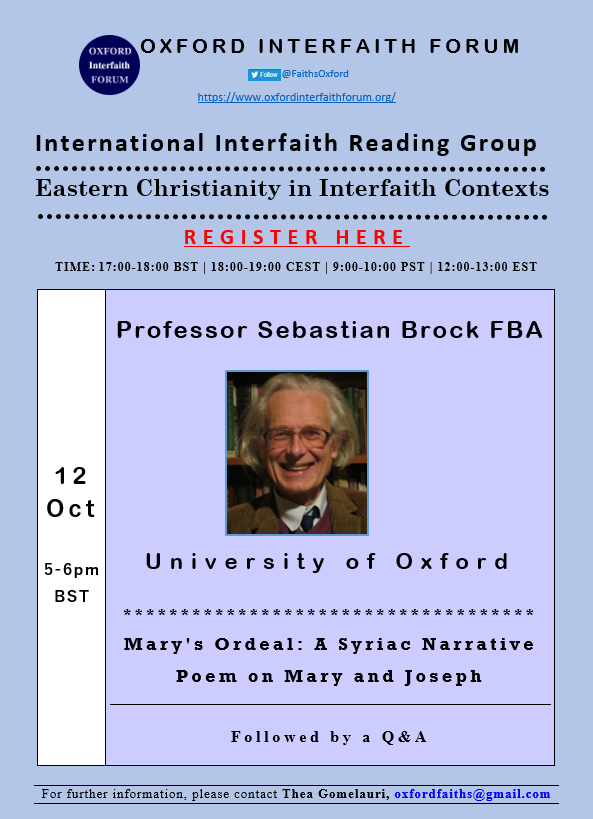
- Resurrection of the Human Body according to John of Dara’s Mimro I:4
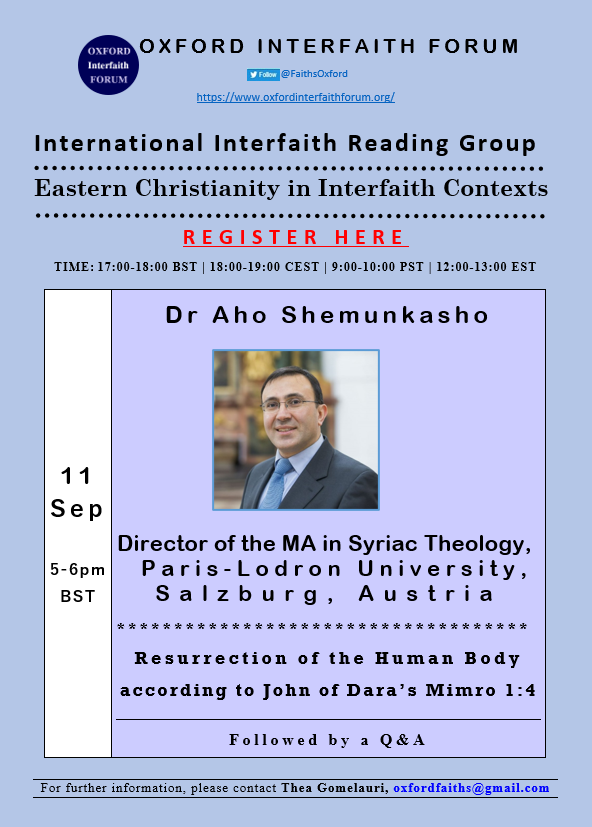
- Gregory of Nyssa: On the Human Image of God
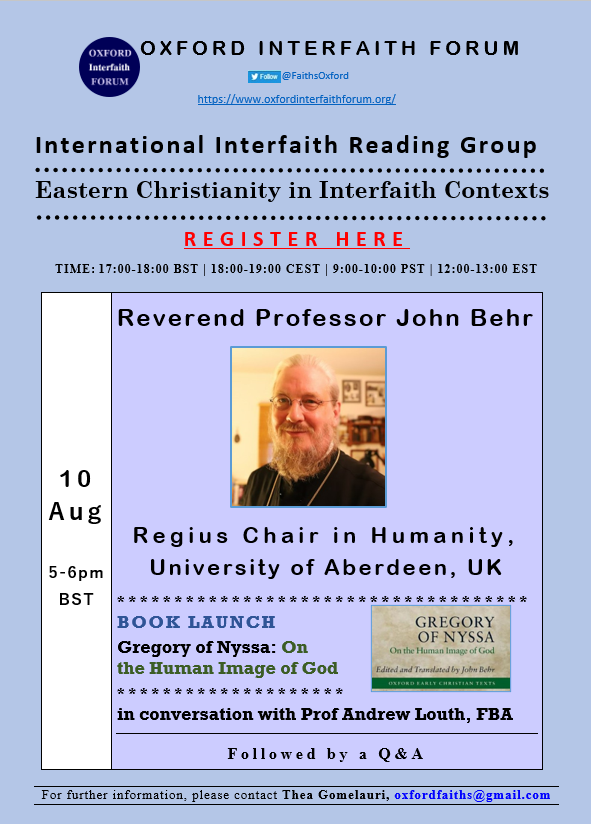
- ‘Conception by ear’ and Redemption of the Human Sensorium in Ephrem’s Thirty-fifth Madrasha on the Church
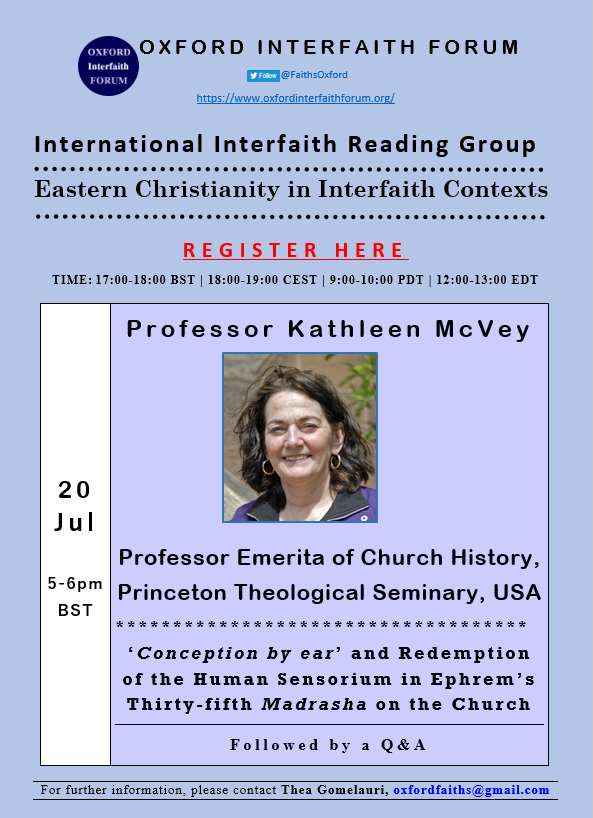
- From Edessa to South Arabia and Back: The Syriac Story of Bishop Paul and Priest John and Models of Sanctity in the Medieval Middle East
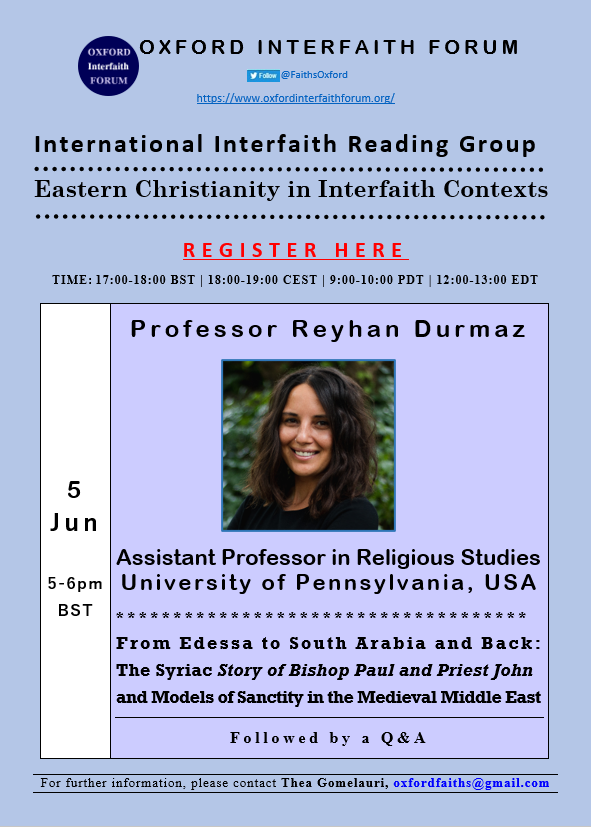
- Wrestling with Calculating-Thoughts: Mental Training according to Evagrius of Pontus

- Returning the Ticket: God and Evil in the Brothers Karamazov
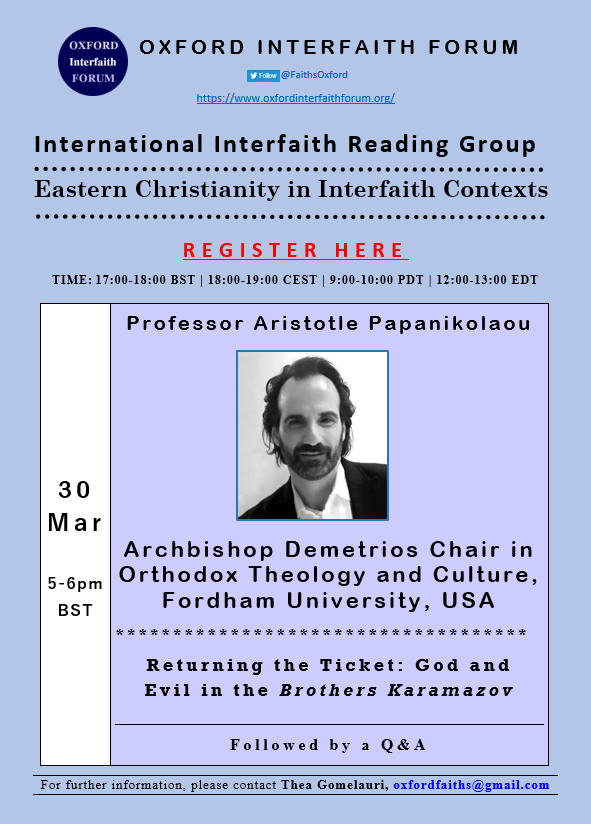
- Ecumenical Patriarch Athenagoras: an Orthodox Dialogue with Islam
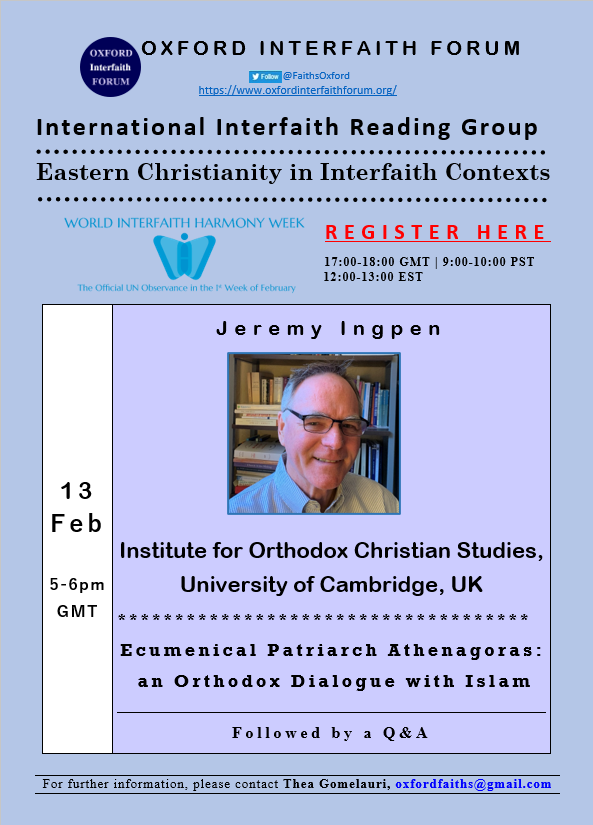
- Matta el-Meskin/Matthew the Poor: a ‘Contemporary Desert Father’ on Christian Unity
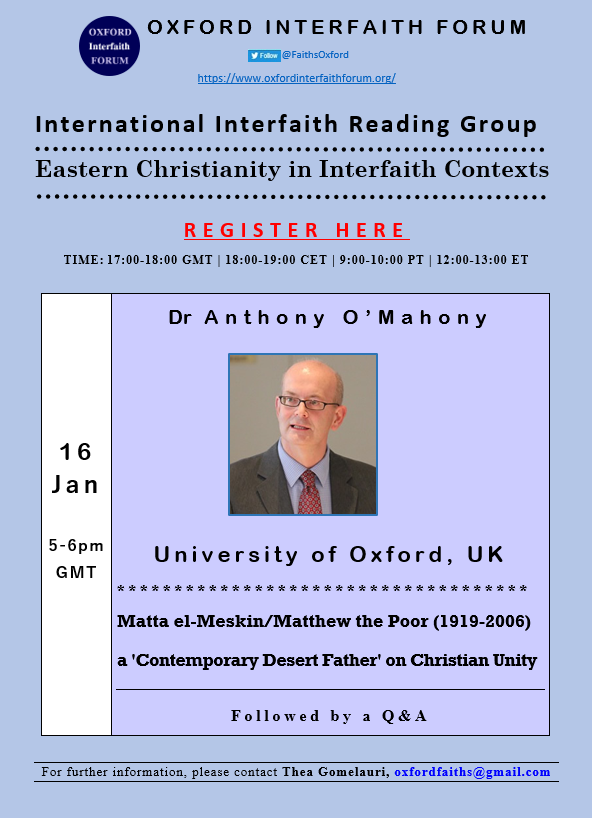
- Signs of Miraculousness: The Inimitability of Jacob of Serugh’s Teaching
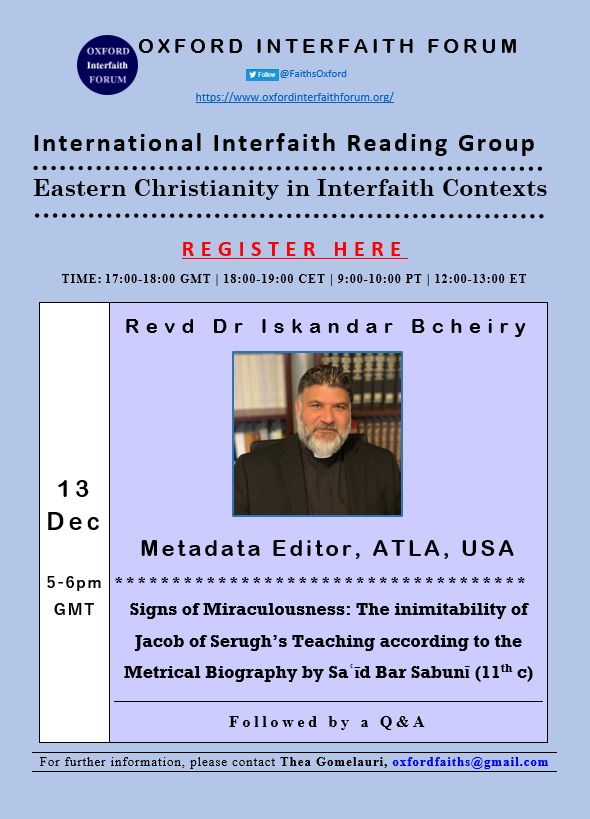
- Epistolary Style in Coptic Letters from the Late Third Century to the Early Fifth Century
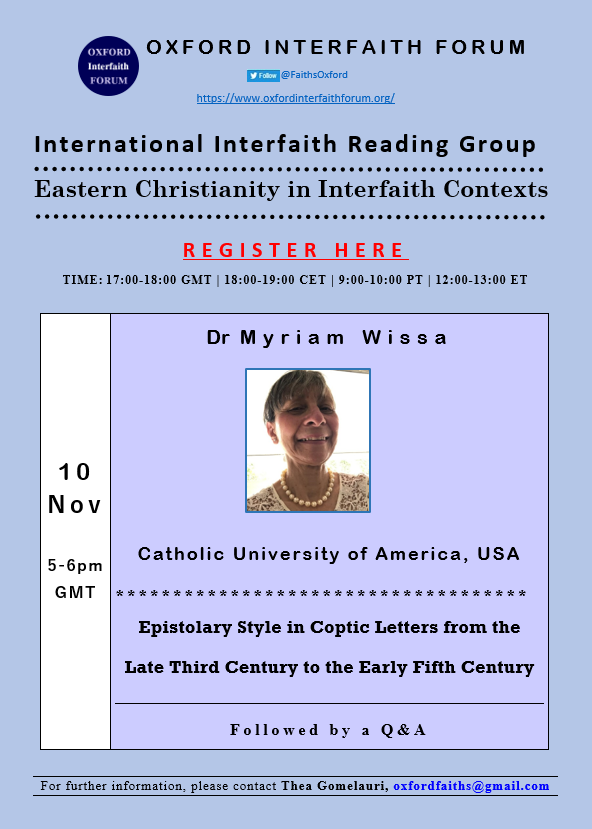
- Sarah and the Akedah: a Syriac Narrative Poem on Genesis 22
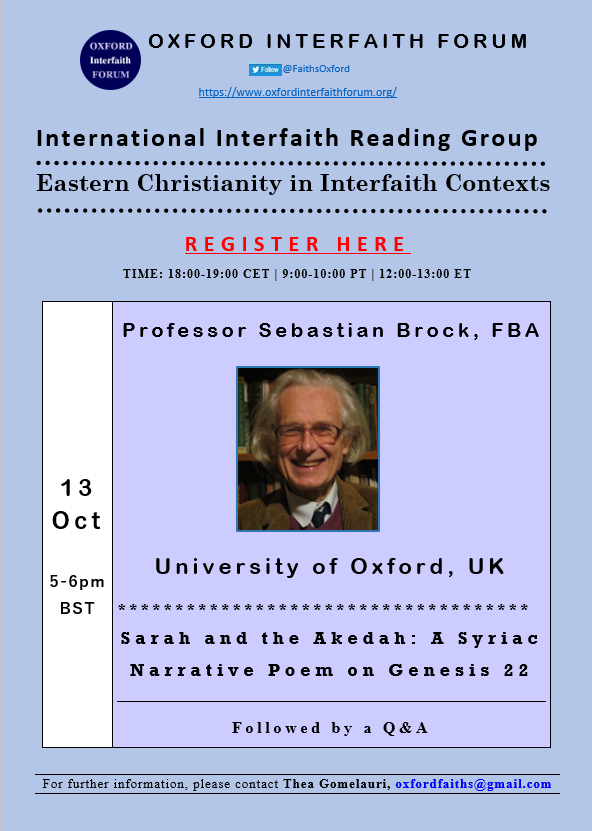
- The Paterik of the Kyivan Caves Monastery: Monk Polikarp in Discourse 14
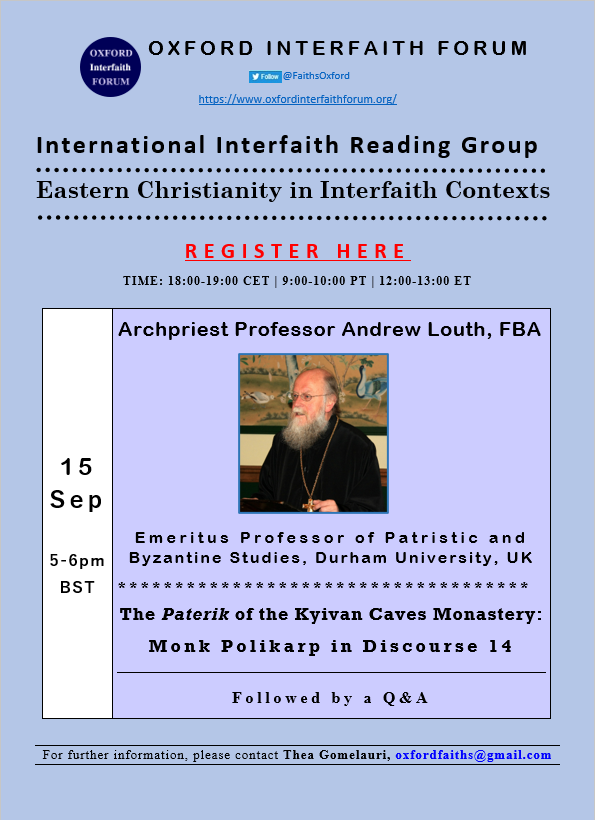
- Jacob of Sarug on the Canaanite Woman (Mt 15:21-28, Mk 7:24-30): Biblical Storytelling and Models of Faith
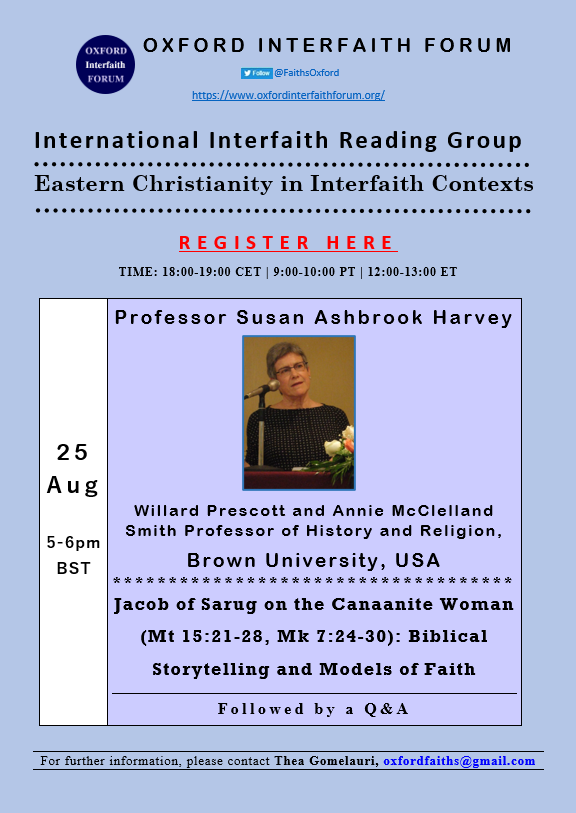
- Commemorating the saints at Turfan: Mart Shir and Mar Barshabba
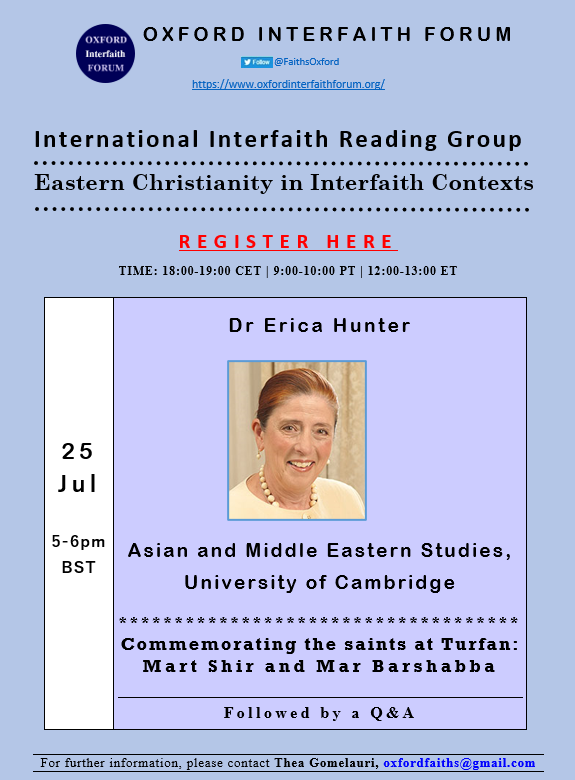
- The Opening Prayers of Saint Gregory of Narek’s Book of Lamentations
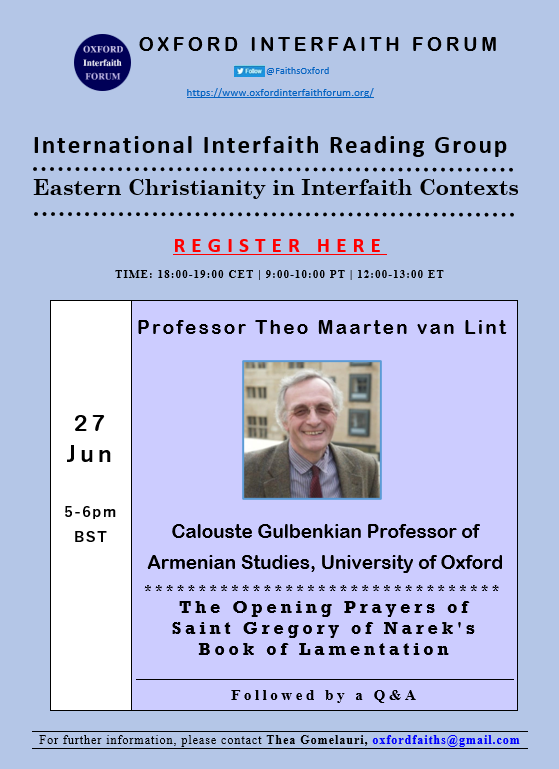
- Alexander Schmemann on Theotokos vis-à-vis Kali a Hindu Mother Goddess
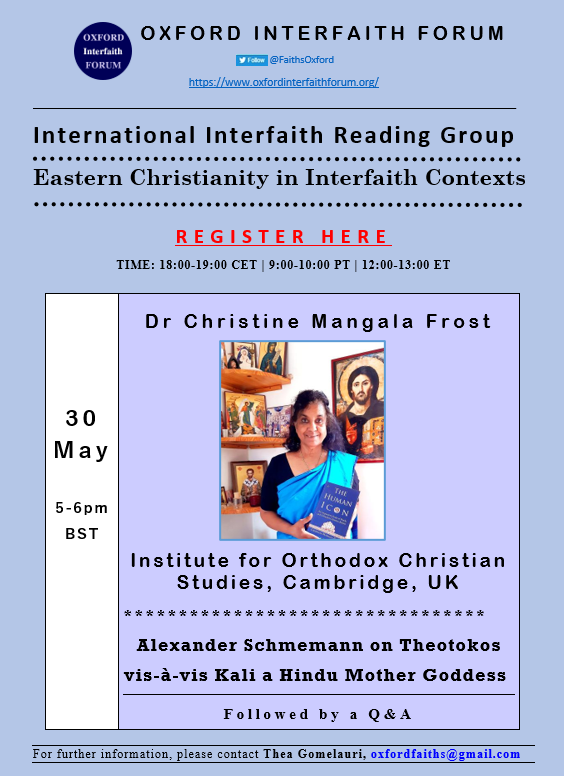
- Enoch and the Fallen Angels in the Ethiopian Tradition
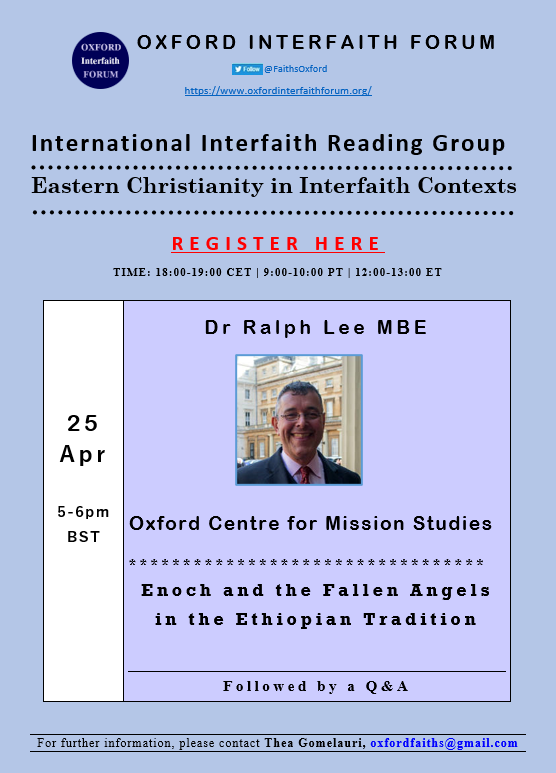
- Narsai on the Virgin Mary
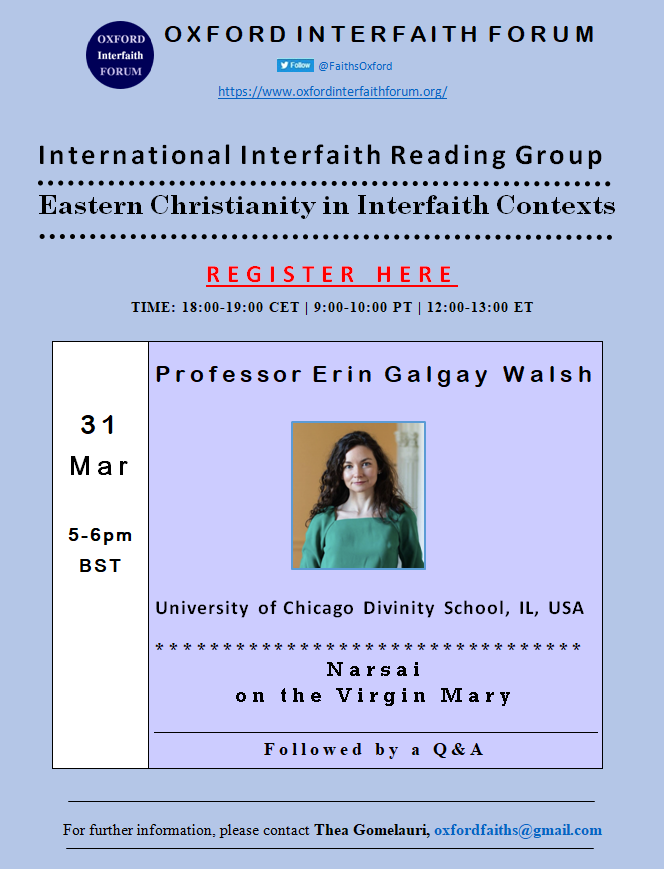
- An Anonymous Syriac Dialogue between Mary and the Angel

- Dadisho of Qatar: Questioning the Desert Fathers

- George the Athonite on Matters of Faith and Rite, According to the Life of St George the Hagiorite
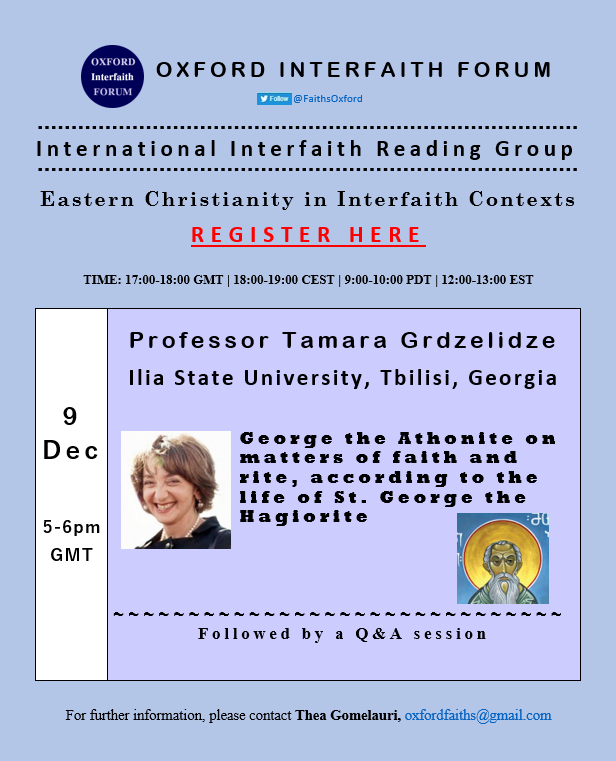
- Temple, Shekhinah and Prayer in Isaac of Nineveh’s III.VIII
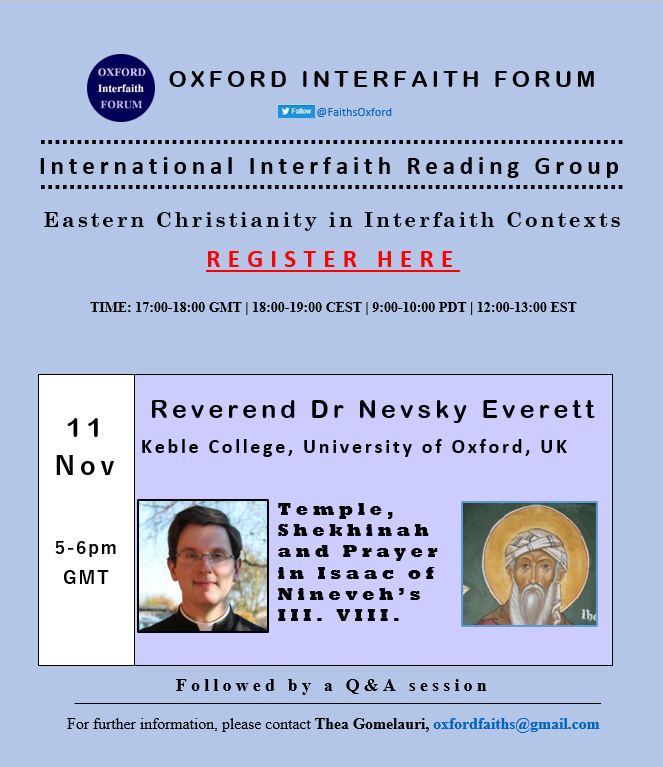
- St. Ephrem’s Commentary on Genesis Ch.3
